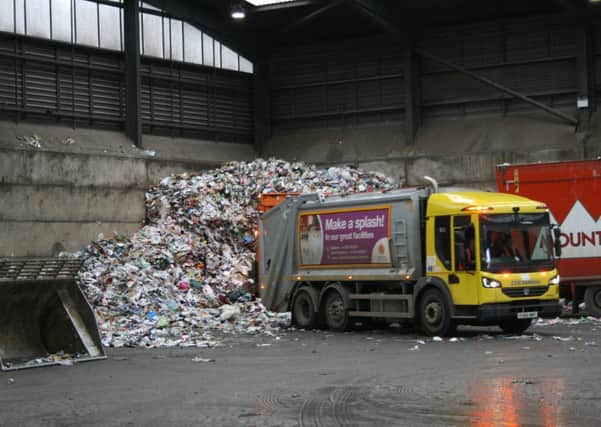Recycling: if in doubt, leave it out


Lincolnshire County Council and North Kesteven District Council have launched a joint effort in the run up to Christmas to urge householders to avoid adding food contamination to their recycling bins - costing taxpayers money in disposal fees.
This Christmas, the Lincolnshire Waste Partnership is asking county residents to take the #rinseandrecycle pledge.
Advertisement
Hide AdAdvertisement
Hide AdWith increasing contamination levels in recycling bins, resulting in approximately £1million fees for the county’s waste authority, the partnership is now asking residents to help support clean recycling.
Coun Reg Shore, vice-chairman of the Lincolnshire Waste Partnership, says: “The majority of residents recycle really well, however sadly just the tiniest amount of food waste or liquid left in the bottom of a packet or bottle can contaminate the recycling load.
“Recent analysis has shown that, on average, 1 out of 4 lorry loads arriving at waste transfer stations across the county are contaminated.
“Between April 2015 and March 2016, the partnership collected 11,500 lorry loads equalling 72,000 tonnes of recycling. Around 2,877 lorry loads were contaminated.
Advertisement
Hide AdAdvertisement
Hide Ad“We need to take action, so we’re asking residents to take the #rinseandrecycle pledge and to encourage others in their community to get involved.
“Christmas is a time when food is firmly on our minds, whether it’s a takeaway after a Christmas night out, a turkey dinner on Christmas Day, eating leftovers on Boxing Day or nibbles at a New Year party. With this in mind, we would ask residents to put all food waste in the waste bin and not in the recycling bin, including turkey carcasses, and if you think the packaging should go in the recycle bin, please wash it first.
“By taking these simple steps and not putting food waste in the recycling bin, the quality of recycling will improve hugely, meaning a reduction in fees and money which can be reinvested back into our services.”
More information on what can go in recycling bins, visit www.lincolnshire.gov.uk/recycling
Advertisement
Hide AdAdvertisement
Hide AdCoun Richard Wright, NKDC Executive Board Member with responsibility for Environmental Services, said: “A quick rinse of tins and containers with your washing up will suffice. If you are in any doubt about what can and can’t be recycled please visit our website, www.n-kesteven.gov.uk, for more information.”
You can also call the council offices on 01529 414155 if you do not have access to the internet.
Head of Environment and Public Protection at NKDC, Mark Taylor said it is costing councils in Lincolnshire a huge amnount of money to deal with the materials that should not be in with recyclables.
“The basic message is, if in doubt leave it out, put it in your black bin if you are not sure,” said Mr Taylor.
Advertisement
Hide AdAdvertisement
Hide AdThe district council also recently outlawed any garden waste being deposited in household recycling bins as it was affecting the efficiency of the county’s energy from waste incinerator plant, instead insisting on all garden waste to be taken to the local tip/recycling centre or put in residents’ own compost bins.